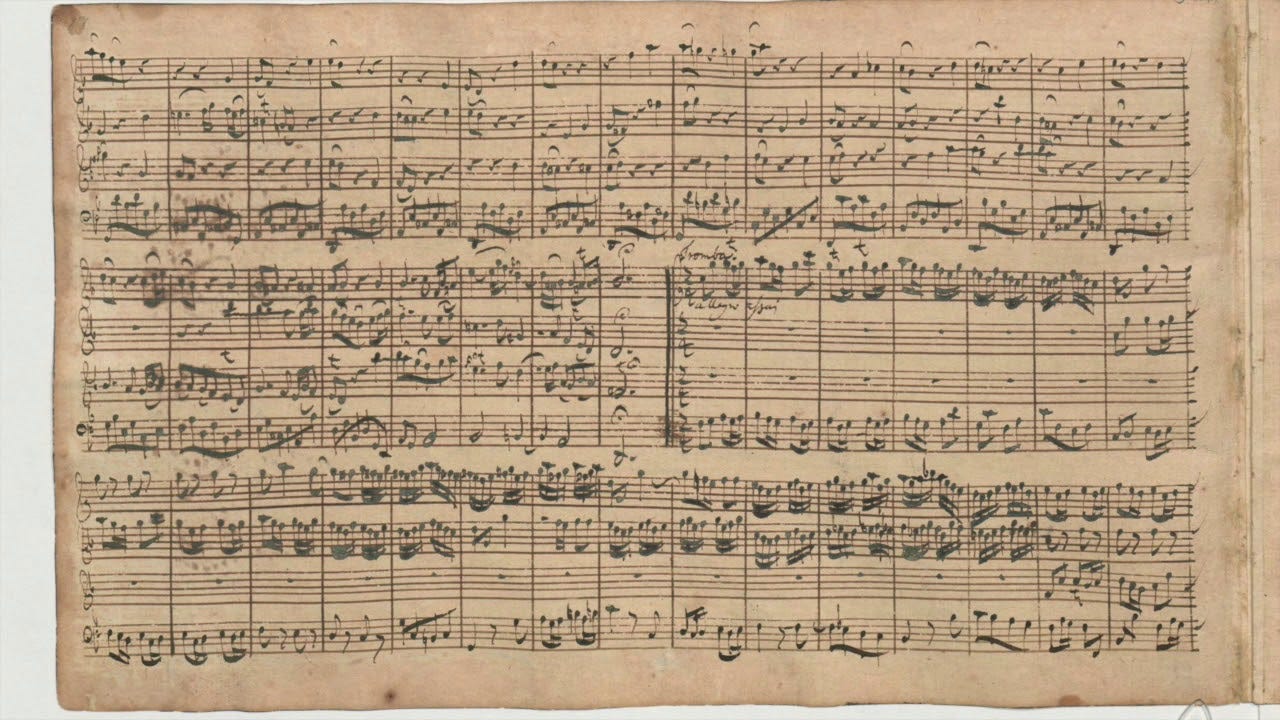
Johann Sebastian Bach’s six Brandenburg Concertos, or the Six Concerts avec plusieurs instruments, which is their original title, is perhaps the greatest example of a dedicated piece of music that was never heard by its dedicatee!
Bach presented these “six concertos with various instruments” to Christian Ludwig, Margrave of Brandenburg-Schwedt, in 1721. Rather than leaving it to a copyist, Bach took the time to write out every part himself. Here is the title page and part of the second concerto, written in Bach’s own hand.


And here is a translation from the original French of Bach’s dedication,
As I had the good fortune a few years ago to be heard by Your Royal Highness, at Your Highness’s commands, and as I noticed then that Your Highness took some pleasure in the little talents which Heaven has given me for Music, and as in taking Leave of Your Royal Highness, Your Highness deigned to honour me with the command to send Your Highness some pieces of my Composition: I have in accordance with Your Highness’s most gracious orders taken the liberty of rendering my most humble duty to Your Royal Highness with the present Concertos, which I have adapted to several instruments; begging Your Highness most humbly not to judge their imperfection with the rigor of that discriminating and sensitive taste, which everyone knows Him to have for musical works, but rather to take into benign Consideration the profound respect and the most humble obedience which I thus attempt to show Him.
In a way, Bach undersold these extraordinary concertos through calling them concertos with “various instruments.” They are some of the most originally scored concertos to ever have been written! Here are the soloists for each concerto:
Concerto №1 — Two Horn, Three Oboes
Concerto №2 — Trumpet, Flute, Oboe, Violin
Concerto №3 — Three Violins, Three Violas, Three Cellos
Concerto №4 — Violin, Two Recorders
Concerto №5 — Harpsichord, Violin, Flute
Concerto №6 —Two Violas
Most likely the reason why the Margrave of Brandenburg didn’t play them was because he simply didn’t have an orchestra large enough. They remained unplayed and in the Margrave’s library until his death in 1734, at which point they were sold for what is approximately $24 in today’s money. They were found in the archives of Brandenburg in 1849 and first performed ever in 1850.
There are many great recordings of the Brandenburgs, but here are just a few of my absolute favorite performances and recordings.
This next set of recordings by the Italian group, Il Giardino Armonico, is glorious, but in order to listen to their recordings of the Brandenburgs, you have to skip to №214.
